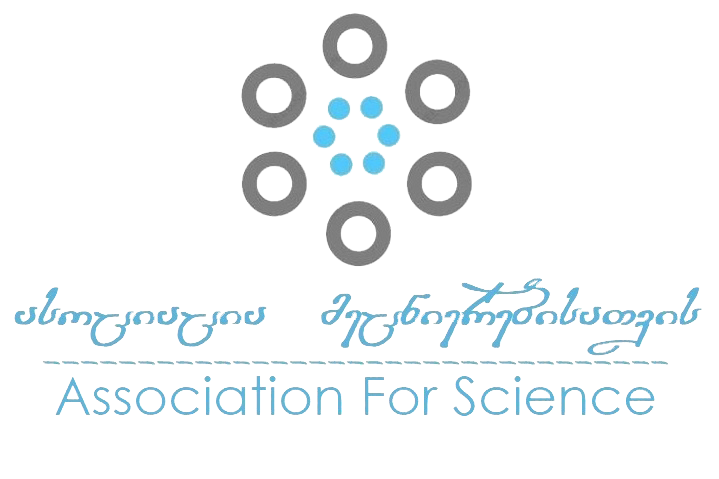პოსტტრავმული მეხსიერების მოდელები ქალური ნარატივის დისკურსში
DOI:
https://doi.org/10.52340/sou.2023.21.25საკვანძო სიტყვები:
ქართველი და აფხაზი ქალი-ავტორები, ომის თეატრი, პოსტტრავმული მეხსიერების მოდელები, ქალური ეპისტოლეების სტილური მახასიათებლებიანოტაცია
ოცდაათ წელზე მეტი გავიდა რუსეთის მიერ ინსპირირებული ქართულ-აფხაზური ომის შემდეგ; თუმცა დროის მიუხედავად, ზემოაღნიშნული მოვლენების ჭრილში, ქართულ-აფხაზური ურთიერთობები კვლავაც აქტუალური განხილვის საგნად რჩება არა მხოლოდ პოლიტიკოსებისთვის, სოციოლოგებისთვის, არამედ ლიტერატორებისთვისაც. 1992-1993 წლების დრამატული მოვლენების ასახვას, როგორც დომინანტი ისე არადომინანტი ნარატივების სახით, არაერთი მწერალი შეეცადა. წინამდებარე სტატიაში გაანალიზებულია 1980-1990-ანი წლების თაობის ქართველი და აფხაზი ქალი-ავტორების ნარატივები, რომლებსაც ომის თეატრი არ უნახავთ; მათი მოთხრობები შეიძლება განვიხილოთ ტრავმული მეხსიერების ჩახშობის, დავიწყების ნების წინააღმდეგ მიმართულ აქტად, როდესაც ავტორები იხსენებენ, გადააფასებენ წარსულს და, ამასთან, წარმოაჩენენ ომის აქტორთა ამბივალენტურ ხასიათს. ქალური ნარატივის დისკურსში პოსტტრავმული მეხსიერების მოდელებს წარმოვაჩენთ აფხაზი და ქართველი ავტორების მოთხრობების კრებულზე - „შეხვედრა“ (2023 წ.) - დაყრდნობით, რომელმაც გააერთიანა ოთხი აფხაზი და ოთხი ქართველი ავტორი.
წიგნის წინასიტყვაობაში პროექტის ავტორები აღნიშნავენ, რომ ომი, როგორც ასეთი, ამ მოთხრობებში თითქმის არ გვხვდება; მაგრამ ყოველ მათგანში იგრძნობა, იკითხება როგორც ერთგვარი საშიში ფონი, როგორც შეუბრალებელი გამანადგურებელი ძალა, რომელმაც მომავალში ბევრი წლით განსაზღვრა ავტორების მსოფლმხედველობა. მართლაც, კრებულში წარ-მოდგენილ ავტორებს აერთიანებთ იდენტური პრობლემები, ანალოგიური კონცეპტუალური ხედვა ომთან/ტრავმულ მეხსიერებასთან მიმართებით, ქალური მწერლობისთვის დამახასიათებელი ნიშანდობლივი კონცეპტები, როგორებიცაა: არალინეალური თხრობა, შემეცნების ნაკადი, ღია ფინალი, ე. წ. ავტობიოგრაფიულობა თუ სუბიექტური ხედვის კუთხე საკუთარი ცხოვრებისეული გამოცდილების გარკვეული მახასიათებლების გადმოსაცემად. თუმცა, ზემოაღნიშნული სულაც არ ნიშნავს, რომ აფხაზი და ქართველი ავტორების ქალურ ეპისტოლეებში ნიველირებულია ავტორთა სტილური მახასიათებლები; პირიქით, ქალი-ავტორები განსხვავებული სტილითა და თვალთახედვით წარმოაჩენენ ომის ტრავმასთან დაკავშირებულ პრობლემებს (რაც, პრინციპში, ლოგიკურიცაა).
წყაროები
ანფიმიადი (2023): დ. ანფიმიადი, ანგელინას ომი, წიგნში: შეხვედრა. აფხაზი და ქართველი მწერლების მოთხრობების კრებული, თბილისი;
არძინბა (2023): ა. არძინბა, კვანტური კავშირები, წიგნში: შეხვედრა. აფხაზი და ქართველი მწერლების მოთხრობების კრებული, გამომცემლობა „ქართული ლიტერატურული ინიციატივა“, თბილისი;
ბატიაშვილი (2023): ნ. ბატიაშვილი, მიფრინავენ თოლიები, წიგნში: შეხვედრა. აფხაზი და ქართველი მწერლების მოთხრობების კრებული, გამომცემლობა „ქართული ლიტერატურული ინიციატივა“, თბილისი;
გეგეშიძე (2023): თ. გეგეშიძე, ყველაფერი მიწის ბრალია, წიგნში: შეხვედრა. აფხაზი და ქართველი მწერლების მოთხრობების კრებული, გამომცემლობა „ქართული ლიტერატურული ინიციატივა“, თბილისი;
ეშსაუ (2023): ნ. ეშსაუ, თალი, წიგნში: შეხვედრა. აფხაზი და ქართველი მწერლების მოთხრობების კრებული, გამომცემლობა „ქართული ლიტერატურული ინიციატივა“, თბილისი;
ოლიკი (2016): ჯ. ოლიკი, მეხსიერება და იდენტობა პოსტსაბჭოთა სივრცეში: საქართველო და კავკასია აღმოსავლეთ ევროპის კონტექსტში. 10.-2016.¬ თბილისი. ელექტრონული რესურსი: https://iliauni.edu.ge/.../profesor-djefri-olikis-sadjaro-leqcia-mexsiereba-dinamikashi.pag.
ტოგონიძე (2023): ე. ტოგონიძე, განახლება, წიგნში: შეხვედრა. აფხაზი და ქართველი მწერლების მოთხრობების კრებული, გამომცემლობა „ქართული ლიტერატურული ინიციატივა“, თბილისი;
შეხვედრა (2023): შეხვედრა, აფხაზი და ქართველი მწერლების მოთხრობების კრებული, გამომცემლობა „ქართული ლიტერატურული ინიციატივა“, თბილისი;
Nora (1989): P. Nora, Between Memory and History: Les Lieux de Mémoire. Representations, No. 26, Special Issue: Memory and Counter-Memory. (Spring, 1989), Representations is currently published by University of California Press. Stable URL: http://links.jstor.org/sici?sici=0734601-8%28198921%290%3A26%3C7%3ABMAHLL%3E2.0.CO%3B2-N



